Elections 2020: Strategy Debrief
Elections 2020: Strategy Debrief
-
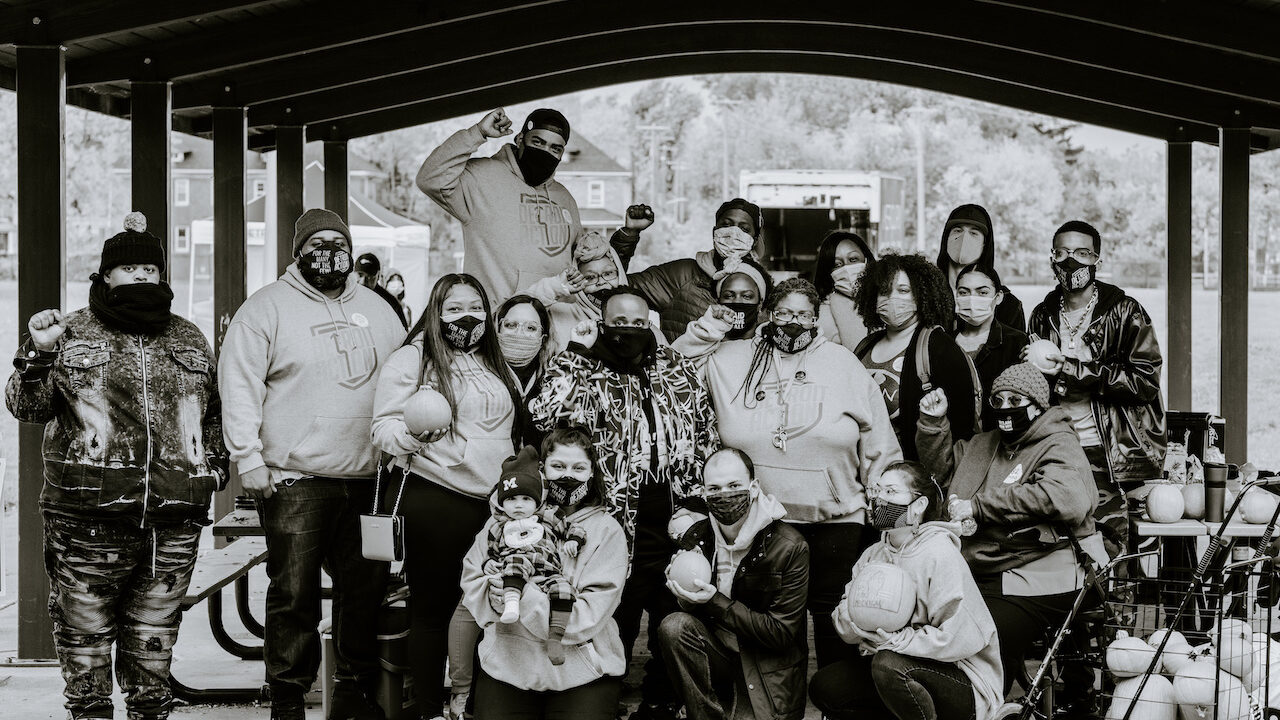
Who Showed Up in Michigan, and Why It Matters
Our willingness to experiment with new tactics and our insistence on inspiring voters through substantive demands offer a model that the Democratic Party would be wise to follow.
-
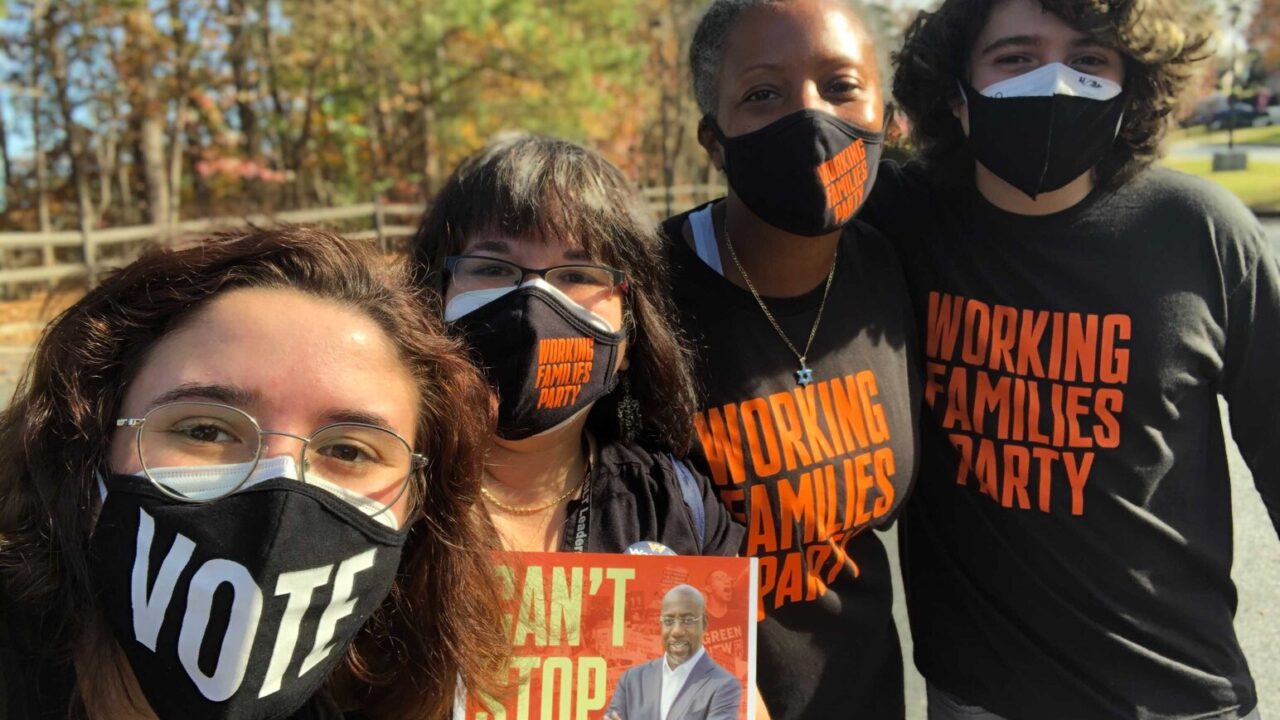
Our Movements Beat Trump. Now What?
Movement power saved the country from four more years of Trump, but our anti-majoritarian system still shut us out of true governing power. How do we build enough power within a rigged system to unrig it?
-

The Power of Pluralism
In order to defeat facism, capitalism, and white supremacy — the forces that are killing and oppressing our communities — we must organize against racism in every single corner of this country.
-

Getty Images The Work Ahead of Us
The notion that we could reclaim our innocence through this election was always naive. We inherited a knotty, intractable, bloody, painful, and extraordinary political project of determining whether or not America will become a multi-racial democracy. It is a project that remains unfinished.
-
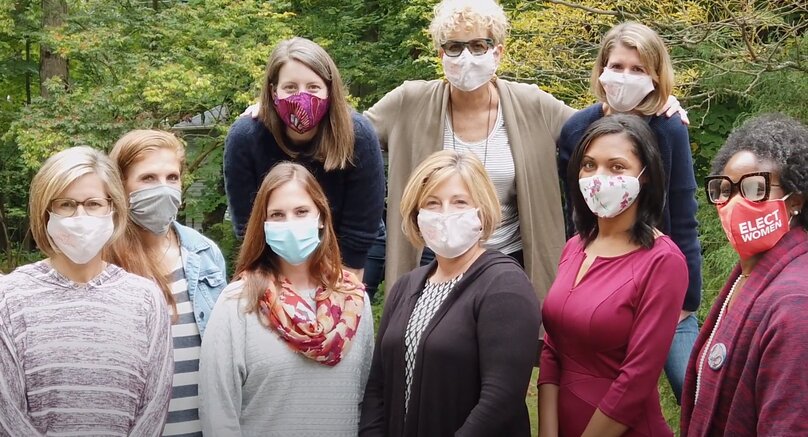
Democrats Should Take the “Wine Moms” Seriously
Lessons from a “get your people” project
-
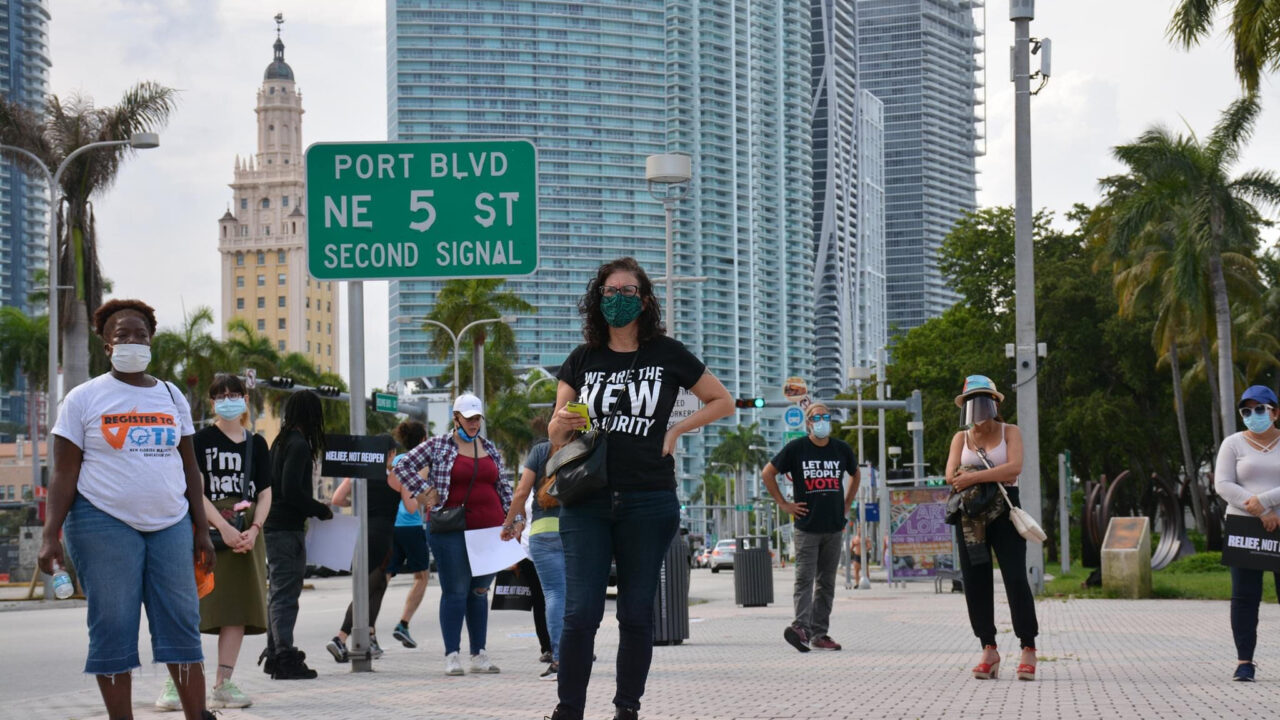
A Deeper Look at Electoral Organizing During a Pandemic
We are proud to be part of the effort that forced Trump to deepen his investment in Florida, helping to create conditions where power-building organizations in Pennsylvania, Wisconsin, Michigan, Arizona, and Georgia could deliver the victory we all needed to give our communities a fighting chance.
-

Out of Chaos, Progress
We must change the rules in American politics to expand participation and make government officials more accountable to organizations and the public at large.
-

Elections 2020: Strategy Debrief
Our task, rooted in our communities and workplaces, is to layer strengthened electoral practice with deeper, long-term, power-oriented organizing and continued sustenance of social movements.
-

Organizing Strategies to Fight Corporate Power
For forty years, corporate consolidation has grown without any significant government intervention to stop it. Organizers must use a diverse set of strategies to upend the prevailing economic orthodoxy and redefine consumer harm.
-
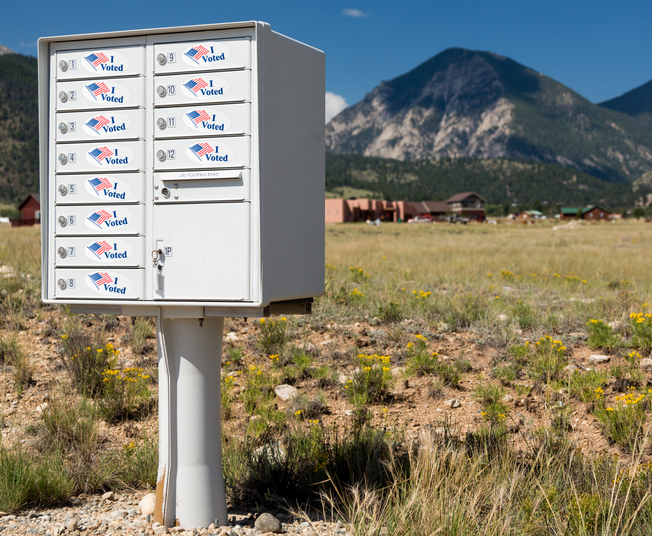
Rural Margins Matter
Rural voters made the difference for Joe Biden in key states this year. And if Democrats hope to control the Senate in 2022 and 2024, the vote in small cities and rural areas will be critical.
-
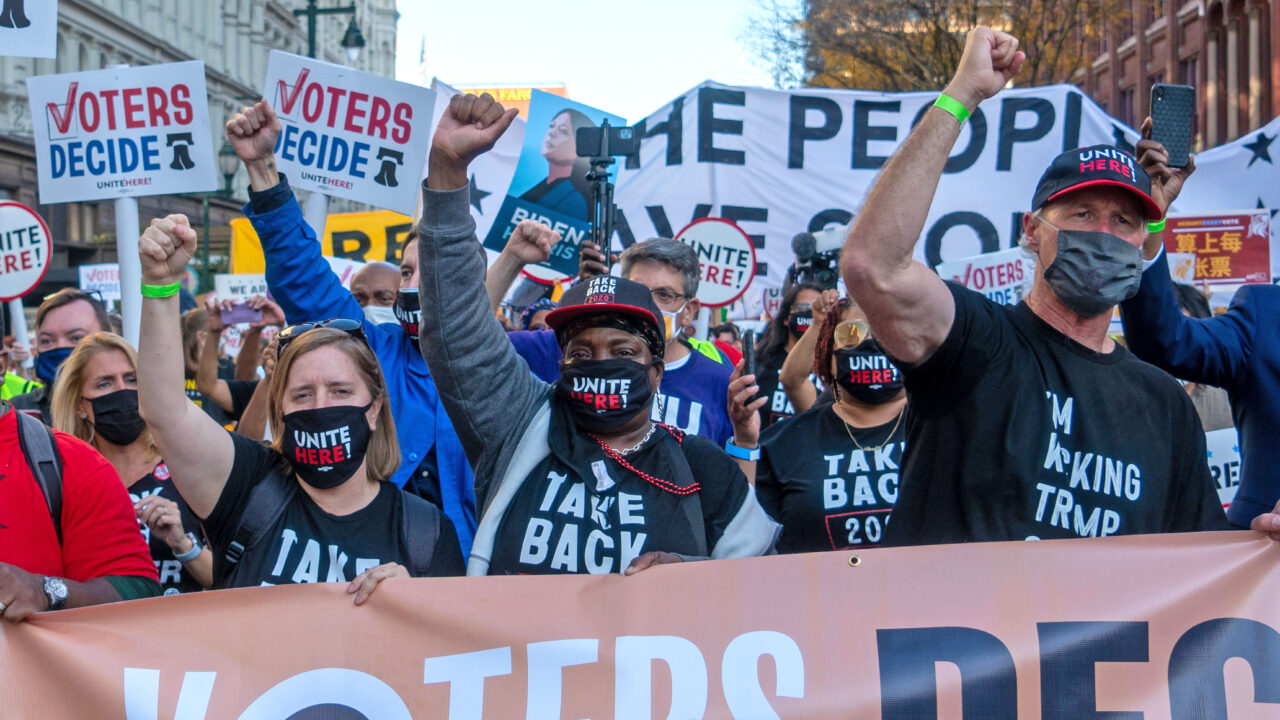
For UNITE HERE’s Hospitality Workers, Democracy Is Essential Work
In the year of COVID-19, no one thought that door-to-door canvassing could be done. Union housekeepers, cooks, and casino workers proved them wrong.
-

On Postcards and Superpowers
Restricting volunteers’ understanding of the ways they can make political change to the kind of one-off anonymous voter contacts most easily reported as metrics does a disservice to those volunteers — and to the organizers seeking to build longer term political power.
-
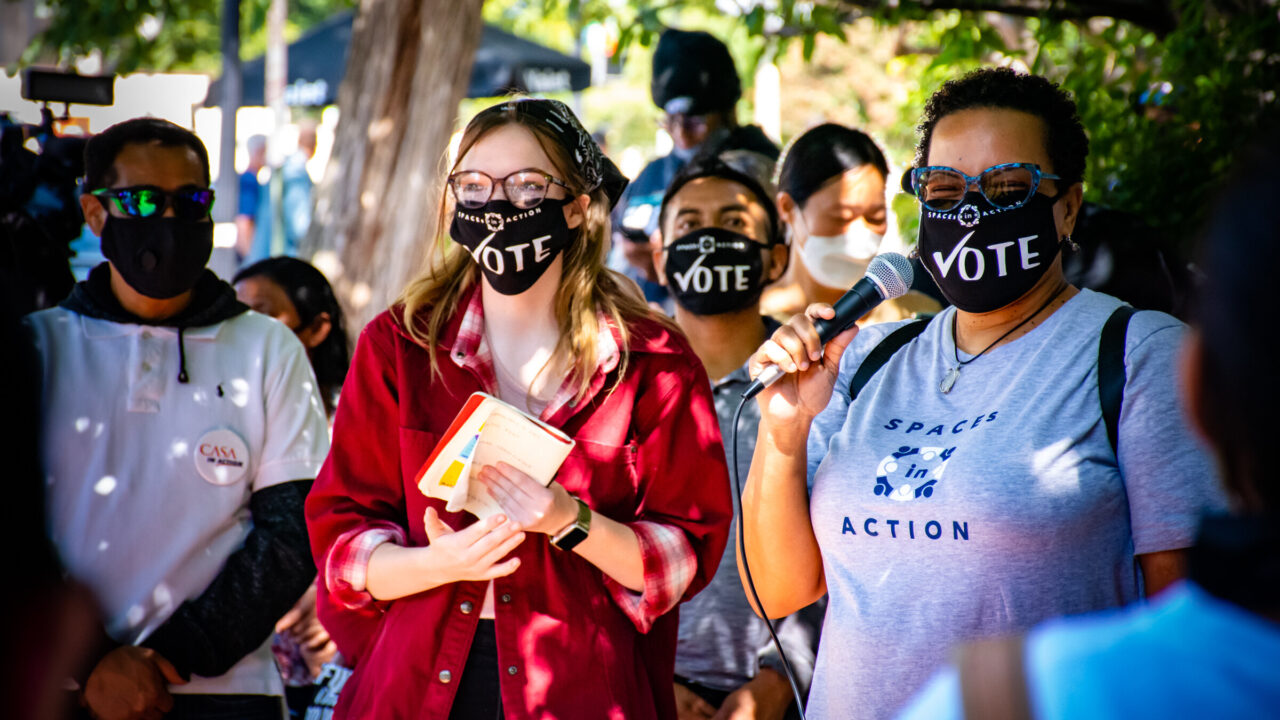
Winning an election is good. Building the power to run the place is better.
We won, but we still have a lot of work to do to build the breadth and depth of electoral power our movements need to durably govern.
-
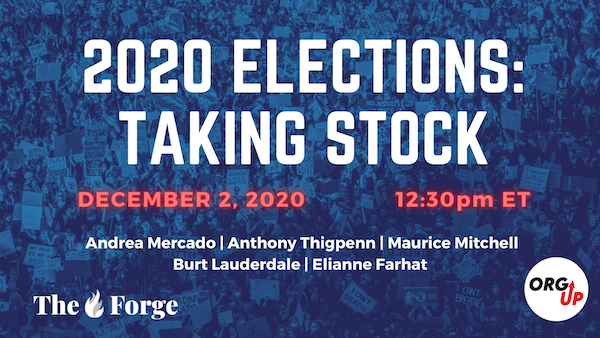
2020 Elections: Taking Stock
Some of the best electoral organizers come together to take stock of the 2020 U.S. elections and chart the path forward.
-
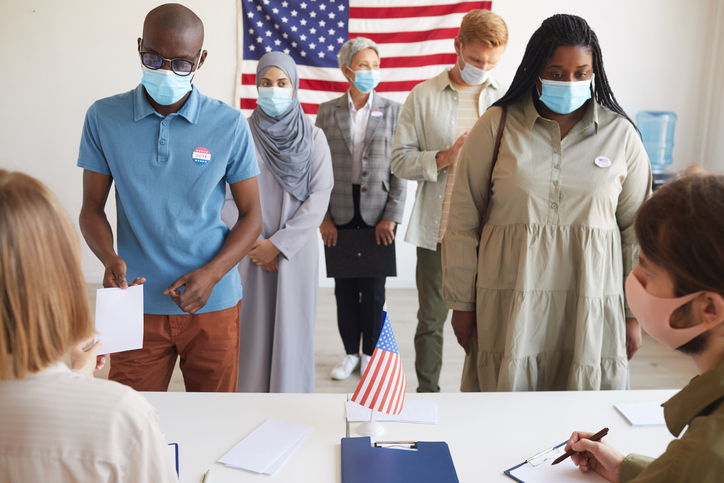
Elections Are Not About Elections. They Are About Voters and Their Lives.
This year provided the hard evidence, in the hardest of election environments, that building movements based on the needs and concerns of working people is measurably more effective at winning votes — and doing so in a cost-effective way.
-
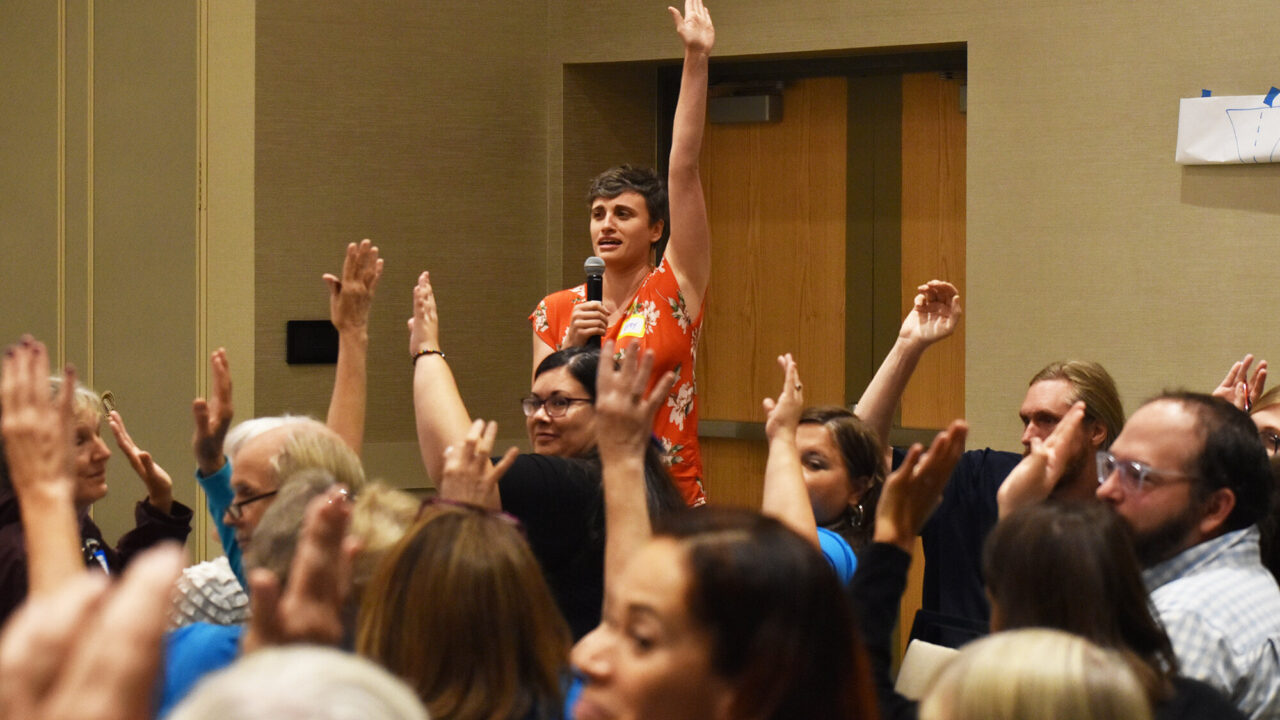
A Radical Take on Voter Turnout in Rural America
Last spring, West Virginia Can’t Wait transformed our gubernatorial campaign’s field operation into a COVID response team. The program ended up outperforming conventional voter turnout programs — forever changing the way our movement will run electoral campaigns.
-

Of Ducks and Democracy
As we confront a decades-long crisis of democracy, our hopes for victory depend on whether millions of people see our indispensable task clearly: a return to the craft of building durable vehicles for collective power.